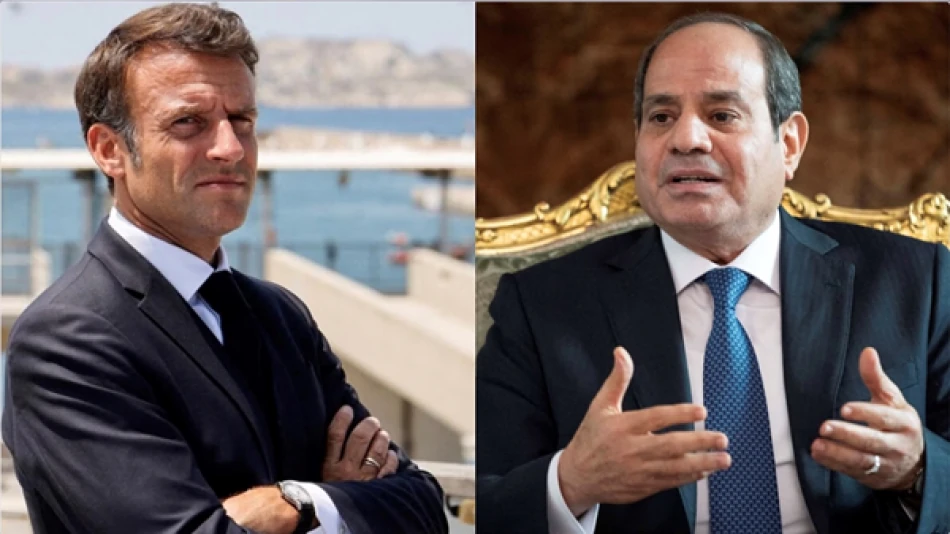
Presidents Sisi and Macron Discuss De-escalation Strategies in the Region
Egypt and France Push Two-State Solution as Regional Tensions Escalate
Egyptian President Abdel Fattah al-Sisi and French President Emmanuel Macron are spearheading diplomatic efforts to advance Palestinian statehood recognition, positioning themselves as mediators in an increasingly volatile Middle East. Their latest coordination signals a European-Arab alliance that could reshape international consensus on the Israeli-Palestinian conflict, particularly as France prepares to formally recognize Palestine.
High-Level Diplomacy Gains Momentum
During a phone call on Saturday, the two leaders discussed follow-up measures from a virtual summit held on September 15, which Macron had convened to address escalating regional tensions. The conversation focused heavily on the ongoing Israeli military operations in Gaza and what Egyptian officials described as Israeli aggression against Qatar—a reference that highlights the expanding scope of regional confrontations.
Presidential spokesman Mohamed al-Shenawy emphasized that both leaders view diplomatic engagement as critical to preventing further escalation, particularly as military actions threaten to destabilize neighboring countries beyond the immediate conflict zones.
September UN Conference Could Mark Turning Point
The centerpiece of their coordination involves a "Two-State Solution" conference scheduled for September 22 on the sidelines of the UN General Assembly in New York. This timing is strategically significant—the annual gathering provides maximum international visibility and potential for building broader coalition support.
France's Recognition Pledge Adds Weight
France's commitment to recognizing Palestinian statehood gives the upcoming conference substantial diplomatic leverage. Sisi explicitly welcomed this French position, describing it as a "positive contribution to achieving just and comprehensive peace in the Middle East." This endorsement suggests Egypt views French recognition as a catalyst that could encourage other European nations to follow suit.
The proposed Palestinian state would be established on pre-1967 borders with East Jerusalem as its capital—parameters that align with long-standing international consensus but remain contentious with Israeli positions.
Strategic Implications for Regional Stability
This Egyptian-French partnership represents a significant shift in Middle East diplomacy. Unlike previous peace initiatives led primarily by the United States, this approach emphasizes European engagement alongside traditional Arab mediators. Egypt's role is particularly crucial given its peace treaty with Israel and its influence with Palestinian factions.
Broader International Pressure Campaign
Sisi's call for other nations to recognize Palestine suggests a coordinated campaign to build international momentum. This strategy mirrors successful diplomatic pressure campaigns that have historically influenced conflict resolution, though the Israeli-Palestinian dispute has proven notably resistant to such approaches.
The timing coincides with growing international concern over civilian casualties and humanitarian conditions, potentially creating a more receptive environment for recognition initiatives that previously faced stronger opposition.
Whether this diplomatic push can translate into concrete progress depends largely on broader regional dynamics and the willingness of other major powers to support the French-Egyptian framework. The September UN conference will serve as a crucial test of international appetite for renewed peace initiatives in one of the world's most intractable conflicts.
Most Viewed News

 Layla Al Mansoori
Layla Al Mansoori






